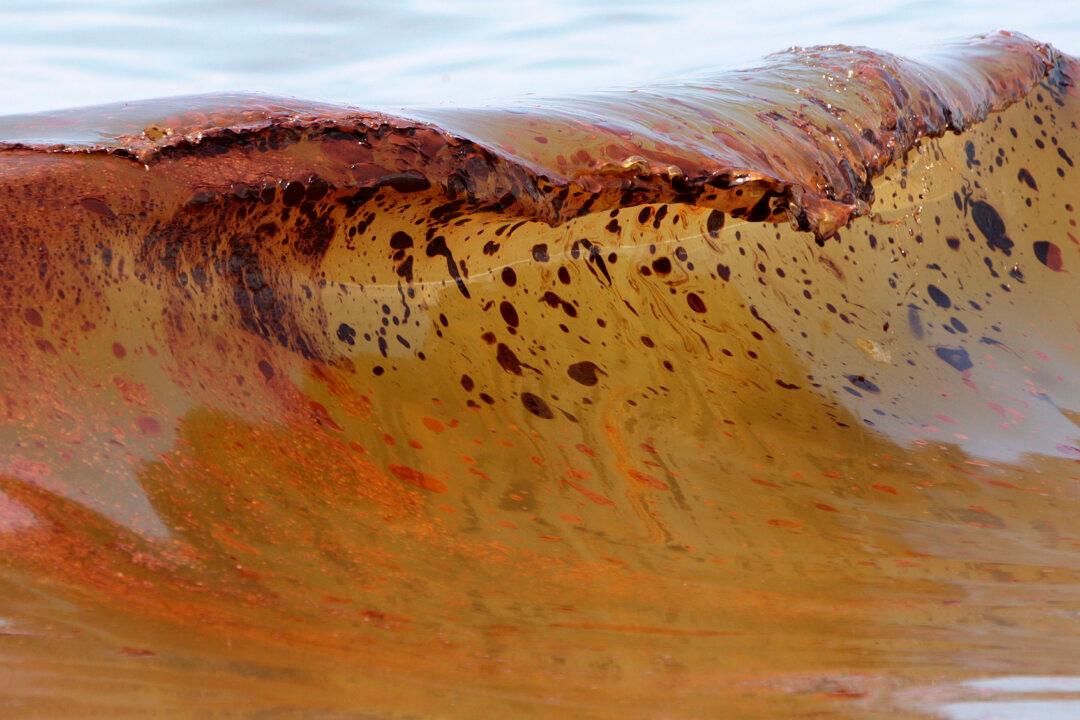NEW ORLEANS—Pictures of fouled beaches and oil-coated birds flashed on a courtroom screen Tuesday as the U.S. government began making its case that BP should pay an additional $13.7 billion in environmental penalties for the Deepwater Horizon explosion, which spilled millions of barrels of crude into the Gulf of Mexico in 2010.
Also on display were images of former BP CEO Tony Hayward, who drew widespread criticism for saying “I'd like my life back” even as the oil giant struggled to contain the spill.
“They continue to focus on their own hardships,” Justice Department Attorney Steven O'Rourke told U.S. District Judge Carl Barbier, who already ruled that BP acted with “gross negligence” in the disaster.
O'Rourke disputed BP’s arguments that any federal Clean Water Act penalties should be held to an unspecified minimum, since the company’s spill-related costs already total $42 billion, including $14 billion for cleanup, plus criminal penalties and economic settlements with affected businesses.
O'Rourke also said Anadarko, a minority partner in the Macondo well, should pay more than $1 billion in penalties. Anadarko attorneys argue that the corporation was a “non-operational” partner and should not be punished with a civil penalty.
BP attorney Mike Brock, previewing his side’s arguments, told the judge that BP mounted a major effort to mitigate damage from the April 20, 2010, disaster.
“Before we even knew that oil was flowing, BP was marshalling resources to prepare for the worst,” Brock said, displaying a map of response centers stretching from Florida to Texas and recounting the hiring of thousands of workers to handle the spill response.
The explosion aboard the offshore rig killed 11 workers and spewed millions of barrels of oil into the Gulf before the undersea well was finally capped 87 days later.
The government says damage was extensive, and ongoing. Brock denied that.
“In fact we know now that the incident did not cause significant adverse impact to populations” of sea life, the BP attorney said. “The injury is not nearly what folks feared in 2010.”
Arguments also will center on the economic impact of a high fine on BP Exploration and Production, the affiliate involved in the Macondo well project, and its parent, BP PLC, and whether the current low price of oil and its effect on the corporations’ health should be a factor in the penalties.
Phase 1 of the trial determined that BP was grossly negligent, a finding the company is already appealing. Barbier also determined, in Phase 2, that 3.19 million barrels were ultimately spilled, roughly midway between BP’s estimate of 2.45 million barrels and the government’s figure of 4.2 million. The higher figure would have meant potential penalties of around $18 billion.
The judge has scheduled three weeks for Phase 3, and plans to keep taking briefings from both sides into April as experts debate the short- and long-term effects of the spill on the environment, business climate and social fabric of the Gulf of Mexico.
From The Associated Press
